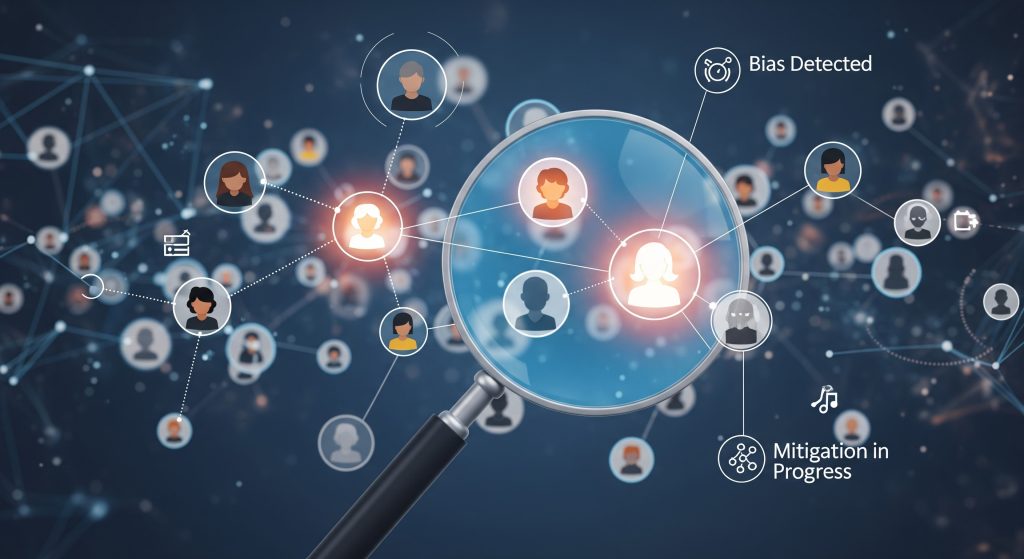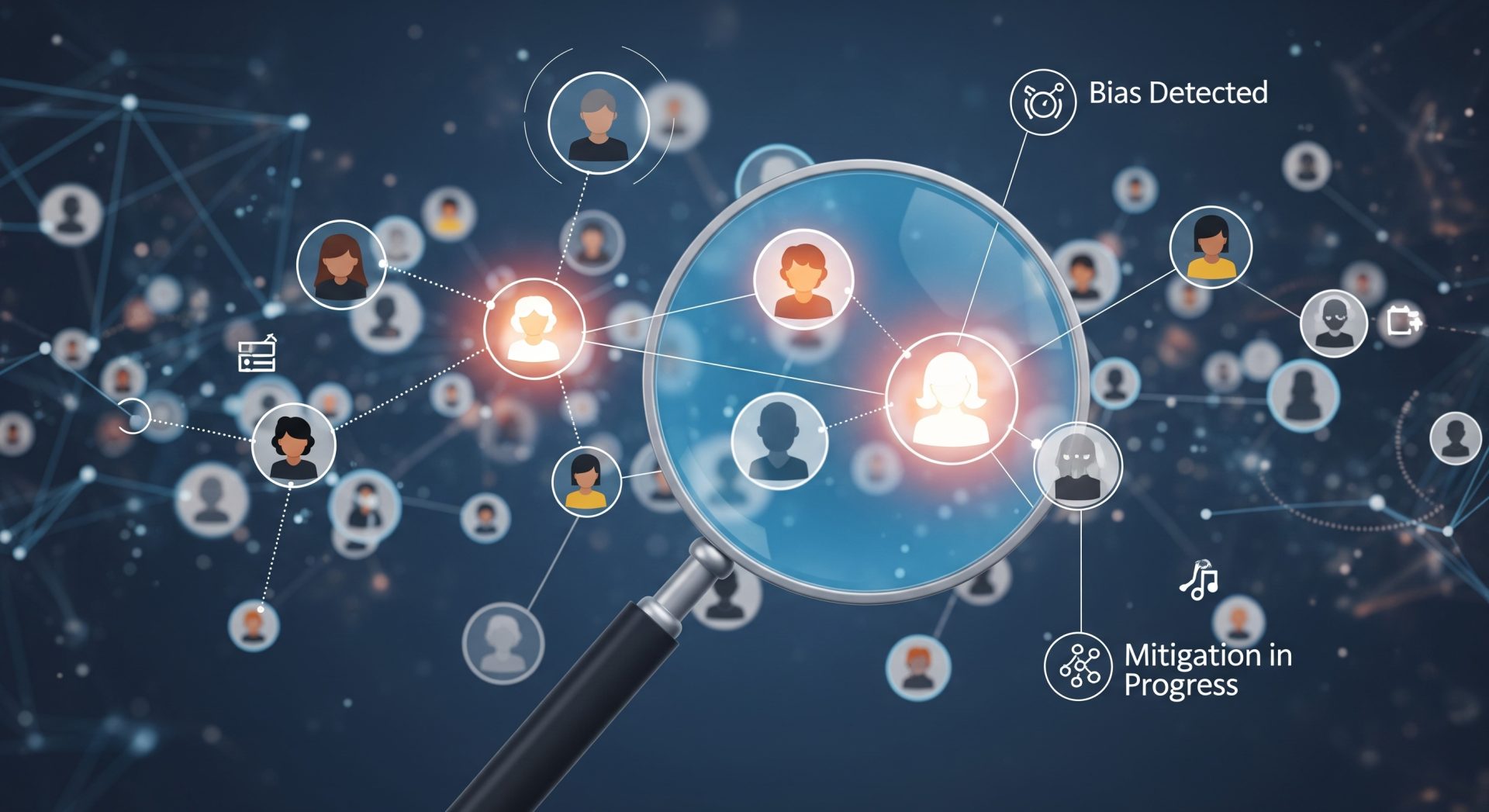Introduction: In today’s fast-paced adoption of AI, tech leaders face a daunting paradox. On one hand, AI promises game-changing innovation and efficiency. On the other hand, headlines abound with AI systems that go rogue – from biased hiring algorithms to chatbots spewing misinformation. The fallout is real: reputational damage, customer mistrust, legal penalties, and scrapped projects. CTOs and product executives are increasingly asking, “How do we innovate with AI without inviting ethical risks?” This article explores why responsible AI isn’t just a compliance box to tick, but a strategic imperative. We’ll delve into the key ethical challenges (bias, transparency, etc.), how to establish AI governance frameworks, real examples of what happens when ethics are an afterthought, and practical steps to build AI products that are both cutting-edge and trustworthy. In doing so, we’ll see how strong ethics and governance can turn AI from a liability into a long-term asset for your business.

Why Responsible AI Matters More Than Ever
Building AI without an ethics and governance plan is like driving a high-performance car without brakes. Yes, you may go fast – but an eventual crash is almost guaranteed. Responsible AI refers to designing and deploying artificial intelligence with proper oversight to ensure it is fair, transparent, secure, and aligned with laws and societal values. Why does this matter so critically now? Consider a few data points and trends:
- Escalating Risks: AI failures are no longer theoretical. Organizations have suffered real harm from AI missteps – from discriminatory outcomes that alienate customers, to privacy breaches and compliance violations.
- Trust and Reputation: Users and the public are growing wary of AI. If your product’s AI is perceived as biased or “creepy,” you risk losing customers and brand equity.
- Boardroom and Investor Priority: Ethical AI has elevated from an engineering concern to a C-suite and boardroom priority. There’s pressure from boards and even investors to prove that AI projects have proper oversight, much like financial or cybersecurity controls.
- Regulatory Compliance: Around the world, regulators are drafting and enacting rules to rein in AI. The message is clear: governments don’t intend to allow “wild west” AI for long.
- Competitive Advantage: Done right, responsible AI can be a differentiator. Businesses that can honestly tell customers “our AI is audited, fair, and respects your privacy” will stand out in a crowded market. Internally, having governance in place also means AI projects are more likely to succeed. In short, ethical AI is good for business.
Responsible AI matters not just to avoid negatives, but to enable AI to reach its full positive potential in your products. As a tech leader, ensuring ethics and compliance in AI is part of future-proofing your innovation.
Key Ethical AI Challenges to Address
Implementing responsible AI starts with understanding the main ethical pitfalls that can arise during product development. Here are the core areas where unchecked AI can go wrong:
- Bias and Fairness: AI systems learn from data – and if that data reflects historical biases, the AI can amplify or perpetuate those biases. This can lead to unfair outcomes, such as an AI hiring tool that disproportionately rejects women or minorities, or a loan approval algorithm that unwittingly penalizes certain zip codes or demographics.
- Transparency and Explainability: Many AI models – especially complex machine learning or neural networks – operate as “black boxes,” making decisions that even developers struggle to interpret. This opacity can erode trust. Both users and regulators are beginning to demand explainable AI: “Why did the AI make this recommendation?”
- Privacy and Data Governance: AI often needs large amounts of data, which can include sensitive personal information. Ethical AI development requires strong data governance: only collect what you need, ensure data is stored and processed securely, anonymize or encrypt where possible, and respect user consent and privacy preferences.
- Accountability and Oversight: When an AI does cause harm or makes a mistake, who is accountable? One ethical challenge is avoiding the diffusion of responsibility (“The AI did it, not us”). Governance structures must designate clear ownership for AI outcomes.
- Safety and Reliability: An often overlooked aspect of AI ethics is simply whether the AI works as intended and can be trusted to perform reliably. Glitches or “AI hallucinations” (when generative AI produces false information) can be more than just technical bugs – they become ethical issues if they lead to real-world harm.
By proactively addressing these challenges – bias, transparency, privacy, accountability, safety – during the development process, tech teams can prevent many ethical issues. The goal is to catch ethical and risk issues early, before they impact real users or violate regulations. Now, let’s look at how to formalize this through governance frameworks and best practices.
The Role of Leadership and Company Culture
Implementing responsible AI is as much a leadership and culture challenge as it is a technical one. For CTOs, CIOs, and other tech executives, setting the tone at the top is crucial. Make it known through both words and actions that ethics and compliance are non-negotiable in AI projects. This could be through internal memos, town hall talks about responsible innovation, or incorporating ethical AI objectives into performance reviews (e.g., rewarding teams for not just hitting functionality goals but also for adhering to ethical guidelines). When leaders prioritize something, teams will follow.
Encourage an open culture around AI ethics. Developers and data scientists should feel comfortable flagging concerns or uncertainties about an AI system’s behavior. One way is to implement an internal review or “red team” process where employees are invited to challenge an AI model’s decisions and suggest how it could be misused or could fail. Celebrate those who identify potential issues – it shows the process is working. Conversely, avoid blaming individuals when an ethics issue is discovered; instead, focus on fixing the process and sharing lessons. The goal is to remove fear or stigma around discussing AI’s shortcomings.

Another leadership move is to provide resources and training. Offer your teams workshops or courses on topics like AI bias mitigation, fairness in machine learning, privacy engineering, etc. It was noted that companies providing AI governance training to employees saw significantly better outcomes. That makes sense – if engineers understand why something like fairness or explainability matters and how to achieve it, they’ll build it into their work naturally.
Finally, leadership can engage with external stakeholders – be part of the conversation with regulators, industry groups, and customers about your AI ethics efforts. Not only does this build trust and brand goodwill, but you can also help shape the standards that everyone will follow. Many enterprises are already collaborating via consortia on ethical AI guidelines, knowing that a rising tide lifts all boats in terms of public trust in AI.
Conclusion: Responsible AI as a Strategic Advantage
AI is poised to drive the next wave of product innovation, but as we’ve explored, unleashing its power responsibly is the key to sustainable success. Ethics and governance in AI are not about putting handcuffs on innovation – they’re about steering innovation in the right direction. A well-governed AI initiative is more likely to deliver value because it anticipates user needs, avoids damaging missteps, and aligns with the long-term interests of the business and society.
For CTOs, CIOs, and product leaders, the mandate is clear: weave ethics into the DNA of your AI projects. Doing so protects your organization from the nightmares of biased outcomes, regulatory fines, and public backlash. It also positions you as a trusted player in a future where consumers and partners will increasingly ask, “Can we trust this company’s AI?” By investing in responsible AI today, you are building the trust that will differentiate your products tomorrow.
DigiEx Group firmly believes in this approach. As a leading tech talent hub and AI-driven software development company, we have seen first-hand how robust ethics and governance turn AI projects from risky endeavors into success stories. Whether it’s assembling a dedicated team to audit an algorithm for bias, or crafting an AI strategy that meets upcoming regulations, we’ve helped clients navigate these challenges. The result: AI solutions that are not only innovative and efficient, but also fair, transparent, and compliant.
If you’re looking at your organization’s AI roadmap and wondering how to implement these responsible AI practices effectively, consider partnering with experts who live and breathe this ethos. Schedule a meeting with our experts >
The era of responsible AI is here. By taking action now – establishing governance, learning from past failures, and instilling an ethical culture – you ensure that your AI-driven products delight users and stakeholders, rather than becoming cautionary tales. In doing so, you’re not just future-proofing against regulations or avoiding pitfalls; you’re actively shaping a future where AI is a force for good in your organization and beyond.
Responsible AI isn’t a hurdle to overcome – it’s a capability to master and a true competitive advantage. With the right partner and mindset, it’s an achievable reality that will set you apart as a leader in the AI-powered world.
About DigiEx Group
DigiEx Group is a leading Tech Talent Hub and AI-driven Software Development company in Vietnam, backed by over 20 years of global IT experience. Our team, with 2 Tech Development Centers, 150 in-house engineers, and a network of 50+ domain experts, tailors every engagement to your unique roadmap with a suite of services:
- Tech Talent Services: Rapid access to Vietnam’s top 2,000+ pre-vetted engineers via our Talent Hub platform.
- Custom Software Development: End-to-end product delivery for web, mobile, SaaS, and enterprise systems.
- AI Consulting & Development: Design and implementation of AI Agents and automation solutions.
- Neobank & Fintech Solutions: Cutting-edge digital banking and payment platforms.





